Problem points of correctional facilities for juvenile offenders
In the monitoring of places of confinement of juvenile offenders human rights deffenders pointed at the lack of proper legal regulation of closededucational-correctional and medical-correctional institutions guarantteing the observance of human rights in them.
Therefore, attempts were made to obtain permission from the Ministry of Education for a visit of lawyer Pavel Sapelka to one of these institutions, special vocational school, in order to investigate the actual situation of its students. However, the Ministry of Education stated it didn't see any reasons for the visit: "Analysis of the actual situation of the students of special educational and health care institutions and the adequacy of the regulatory order is carried out within the premises of prosecutorial supervision and is the responsibility of the prosecution. The Ministry of Education has sufficient resources of the state scientific-educational and training institutions to conduct research on the issues You have mentioned... so, there are no reasons for your visit to Kryvichy special vocational schools,” stated Deputy Minister of Education.
There are no doubts in the role of the prosecutors and scientific-methodological capacity of the Ministry. However, the effectiveness of these means is doubtful. At this stage there are no reasons to suspect the staff of these institutions in abusing their rights. However, the study helped to find some problem points in of special boarding schools. Public scrutiny would doubtlessly improve the situation.
Here is an example :
The Decrees of the Council of Ministers republic of Belarus "On approval of the Model Charters of special educational institutions", "On approval of the Model Charters of specialized institutions for juveniles in need of social assistance and rehabilitation" and "On approval of the Model Charters of special medical and educational institutions" were abrogated by the regulation of the Council of Ministers for November 23, 2012 № 1077 "On Amendments to Certain resolutions of the Council of Ministers and the invalidation of certain decisions of the Council of Ministers of the Republic of Belarus and their structural elements". These regulations provided more details on issues concerning the prevention of child neglect and juvenile delinquency and the legal status of students of closed boarding schools, compared to laws of the Republic of Belarus.
Only now – more than a year later, the Ministry of Education has adopted the regulation "On approval of provisions on special educational-correctional and medica-correctional institutions" which is currently undergoing a mandatory legal expertise in the Ministry of Justice of the Republic of Belarus. It means that during more than a year the educational institutions operated on the basis of the charters, which did not wholly correspond to the law.
For example, the Charter of the educational establishment "Mahiliou state special boarding school" does not take account of changes and additions to the Law of the Republic of Belarus "On Principles of Prevention of Juvenile Delinquency", and, in violation of the Education Code, does not provide for judicial review of disciplinary penalties.
In accordance with the Law "On Principles of Prevention of Juvenile Delinquency", measures of pedagogical impact, apart from the measures envisaged by the legislation on education, include: the prohibition to leave the educational-correctional or medical-correctional institution; placement in the rehabilitation room. A student can be placed in the rehabilitation room for no more than two days.
According to the school Charter, the following disciplinary actions may be applied to a student for gross or repeated violation of the internal rules of the regime and teh Charter of the special school: admonition; reprimand; limitations on leaving the territory of the special school in the manner prescribed by the Charter; placement in the room to the disciplinary room for up to three days.
The Charter provides for the regulation of certain issues of school activities, rights and responsibilities of students by internal regulations. However, the legal status of these regulations is unclear: they weren't been adopted by any Ministry or the Government. The right of the Ministry of Education or the right of educational institutions to adopt and publish such regulations is not provided by the Law of the Republic of Belarus "On Principles of Prevention of Juvenile Delinquency". In accordance with the response to the appeal to the Ministry of Education, "the Ministry of Education does not develop departmental regulations governing the standards of accommodation, schedule, provision with showers, etc. in individual institutions".
Thus, the conditions of keeping of juveniles in special educational and special medical institutions and the conditions in them are not regulated by the Law of the Republic of Belarus "On Principles of Prevention of Juvenile Delinquency" and are left to the discretion of the staff of the educational institutions, which is unacceptable. Local regulations of educational institutions contradict the law in the part concerning the rights of the students. However, these violations are not detected either by the Ministry of Education or the prosecutor's office, which is responsible for monitoring of the implementation of the laws.
The food standards and cash allowance for meals of students of closed institutions are established by the Council of Ministers. These standards have significant differences from those established for children in orphanages and boarding schools: expenditures for meals of students of closed institutions depending on the age are as follows: in the age of 11-13 years – 36,000 rubles, 14-17 – 38,700 rubles a day; the expenditures for meals of children in orphanages and boarding schools are 42,250 and 45,160 rubles a day respectively. students of closed schools, unlike their peers from educational institutions, do not receive 200 g of juice daily, receive 50 grams less fruit (150 g instead of 200), twice less dried fruits (10-12 g instead of 15-25), cheese (5 g instead of 8-10) and confectioneries (15 g instead of 30). The norm of meat, poultry, fish and sour cream for them is 10-40% less than normal.
It is difficult to justify such a difference: students of closed institutions have no physiological differences from students of open educational institutions. Most of the inmates of closed educational institutions, as well as their peers who are without parental care, do not receive supplementary food from relatives and have to rely only on the food provided by the state.
According to the data provided by the Ministry of Education, there are three educational-correctional institutions and one medical-correctional institution in the Republic of Belarus: educational establishment "Mahiliou state special sclosed school", "Mahiliou state special closed vocational woodworking school No. 2", "Petrykau state special closed vocational light industry school No. 1" amd medical-correctional establishment "Kryvichy state special closed vocational school № 3".
Educational establishment "Mahiliou state special closed vocational woodworking school No. 2" was established on the basis of All-Belarusian agricultural commune for homeless and young offenders No.1, which was organized in 1924 near the railway station. In 1944, after the liberation of Belarus from the Nazi troops, Mahiliou juvenile penitentiary was created on the site of the commune. On August 1, 1964 Mahiliou juvenile penitentiary of the Ministry of Internal Affairs was passed to the Ministry of higher, secondary specialized vocational education and renamed the Mahiliou city vocational school No. 51. In 1968 Mahiliou city vocational school № 51 in Mahiliou was renamed special vocational woodworking school № 2. In 2004, Mahiliou special vocational woodworking school № 2 was renamed the Educational Institution "Mahiliou state special closed vocational woodworking school No. 2".
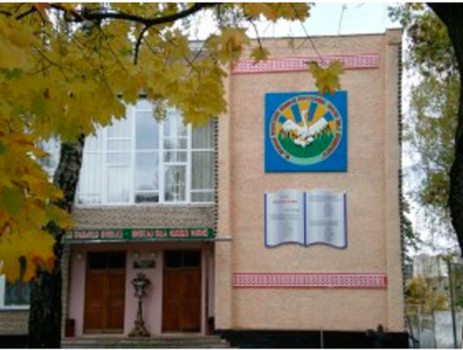
The institution meetgs the visitors of its website with the words:
"Welcome!
The vocational school is a special closed educational institution for solving the tasks of social rehabilitation, correction and retention of juveniles who have committed socially dangerous acts or acts contrary to the rules of social behavior. Teenagers (boys) aged 14 to 18 years, are sent to the school for up to two years".
The teenagers wear paramilitary uniform everyday, diring festivities and when going beyond the institution.
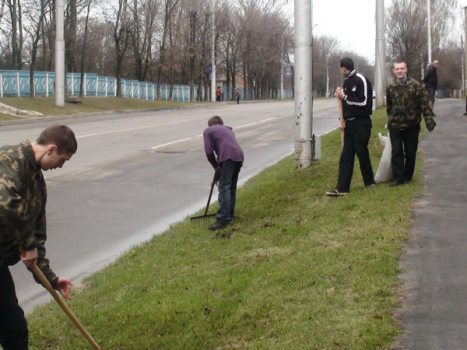
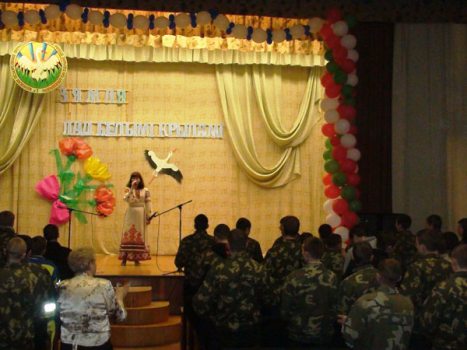
The teenagers also wear this uniform at classes.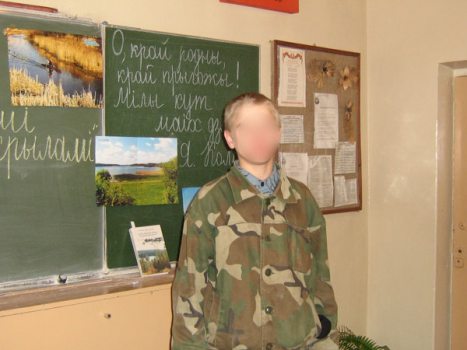
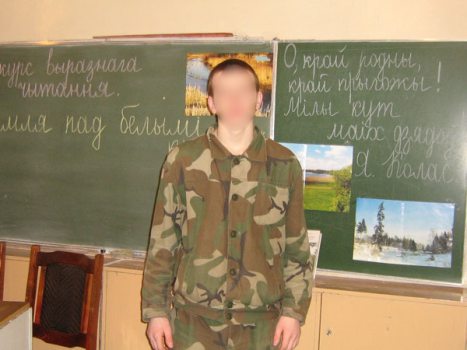
Medical-correctional institution "Kryvichy state special closed vocational school № 3" is located in Miadzel district, Minsk region.
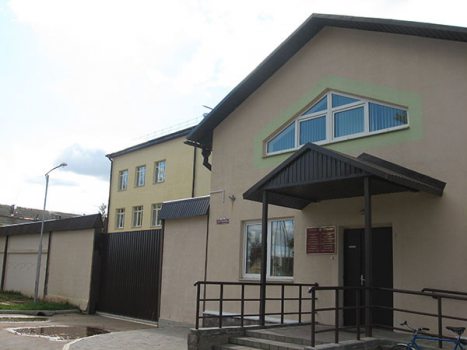
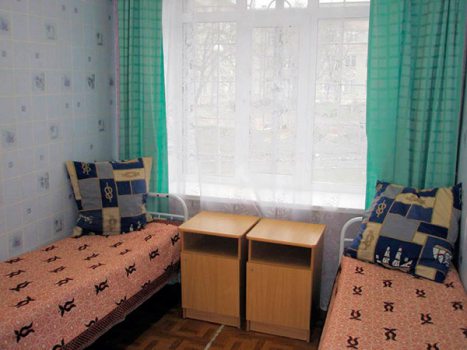
As of January 1, 2013, there were 34 students aged 11 to 18 years. 20.8% of them were children up to 14 years, 79.2% – 14 to 18 years.
Mahiliou state special closed school is the only school of such kind in Belarus. The school is designed for 140 students and is located in a brick building built in 1967. There are six classrooms, rooms of computer science, physics , chemistry, mathematics and geography, 4 work shops for employment training, a gym, a sports room, an assembly hall, information and library center, relaxation room, office of social educator and a games room.
According to the statystic analysis, published by the school, each student repeatedly committed wrongful acts.
57 out of 58 students (98%) committed theft or embezzlement, 8 used toxic substances, 3 – alcohol, 6 – committed acts of hooliganism, 2 - sexual assault, 28 evaded from studies, 12 were engaged in vagrancy, 4 – in extortion of money from minors, 6 – in beating of minors.
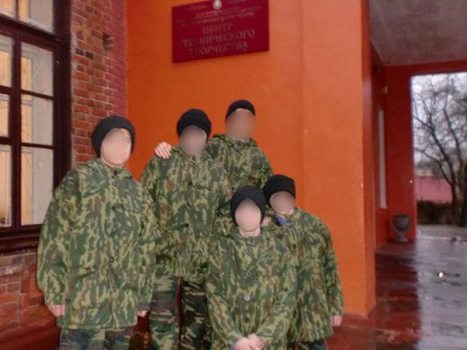
Teenage students, 11-15 years old, wear uniform. Outside the educational establishment they wear the same uniform or identical tracksuits.
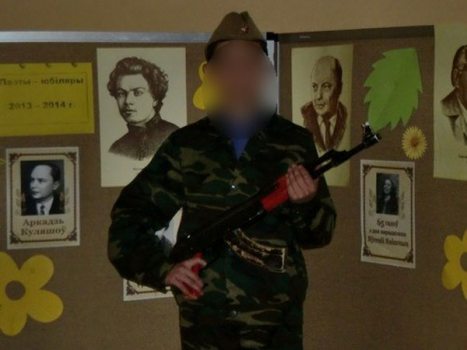
Currently, the school has about 60 students (six classes), only boys. Teaching and education is provided by 33 teachers, 24 of them have the first or the highest qualification category.
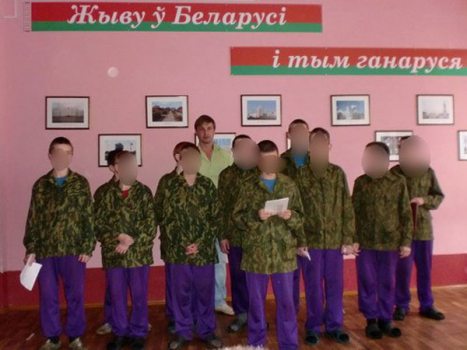
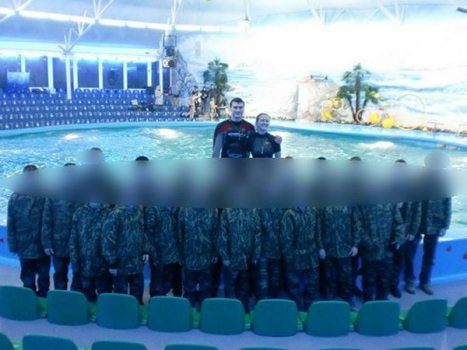
According to the established rules, the students get up at 7 a.m. and go to sleep at 10 p.m. After getting up they do morning exercises, washing, cleaning of the rooms and have breakfast. Classes last from 9 a.m. to 3 p.m. There is a break between the classes for an afternoon snack and a walk. After the end of the classes, there begins the work of various circles, sections (sports, music, crafts and science); special time allotted for homework. Then - dinner, after which educational activities are conducted in groups. Every day at 9 p.m. the students watch the news on Belarusian television.





























